Luveve Road works test Bulawayo engineers
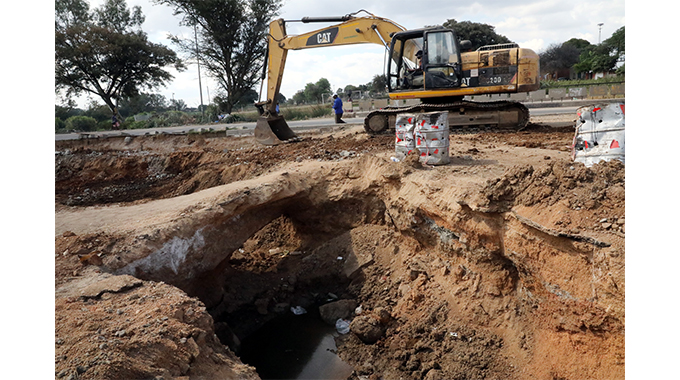
Nqobile Tshili
BULAWAYO City Council’s (BCC) civil engineering expertise is being put to test in the rehabilitation of Luveve Road near Renkini as the scope of works have significantly changed due to underground water among other complications.
When council started rehabilitating a section of Luveve Road near Engen Service Station it encountered expansive clay soils, dilapidated water and sewer mains within the works.
Those obstacles explain why rehabilitation work carried out by council in the past has not been effective as the road would become damaged within a short space of time.
Work being done along Luveve Road comes at a time when the local authority has scaled up its road maintenance programme across the city which includes pothole patching.
Some roads in the city centre and Khami Road among other roads that had been littered with potholes have now been attended to.
BCC corporate communications manager Mrs Nesisa Mpofu said while their records only showed that the stretch along Luveve Road near Renkini had two reclaimed water mains, engineering teams working on the project encountered seven reclaimed water mains that are leaking.
“The leaks appear to have been ongoing for years un-noticed and have soaked a significant area of the road formation/sub-formation. Currently on the western side of the bridge there are three locations that the construction team is investigating the source of water that accumulates within the trench for the proposed filter/ french drain,” said Mrs Mpofu.
“The leaks have made it necessary that the team has to remove the existing road formation/sub-formation material over the entire carriageway width and replace it with suitable approved material.”
She said treatment for the ground water will require “filter drain material to be wrapped in a permeable geotextile membrane” which will increase the cost of rehabilitating the road.
“The permeable geotextile membrane is a material that allows water to filter through, while blocking soil particles and prevents the intermixing of granular sub-base/subgrade layers and the passage of stone particles that could cause the failure of the surface or pavement structure. It is hoped the supplier for the geotextile material will deliver the material as promised by Wednesday next week,” she said.
“These changes have had cost and programme implications. At the moment the discovery of underground services is ongoing and as a result the team is unable to quantify and put an exact figure for the additional cost of the works.”
Mrs Mpofu said the presence of leaking water pipes is likely to necessitate the reduction of the scope of works so that the cost of works remain within budget for the current year.
She said following global trends, underground water has had adverse impact on road works worldwide causing potholes among other things.
Mrs Mpofu said the section under repair was also affected by the same problem.
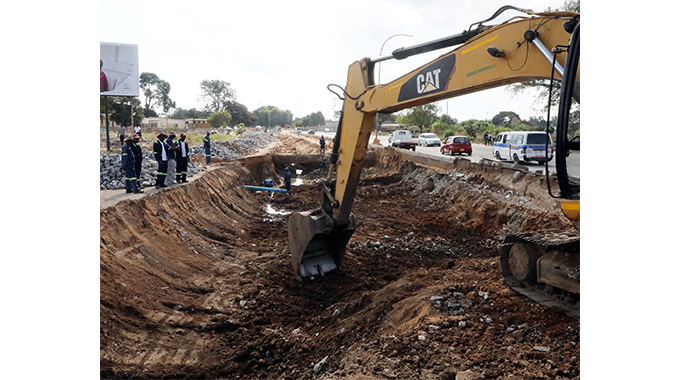
Luveve road section under construction
“Surface and/or ground water has a damaging effect on most of the materials used in road construction. In the summer months heavy rainfall can cause water infiltration into the cracks and joints of road pavement, with resulting weakening of the pavement structure, which can develop into deformation, cracking and potholes,” said Mrs Mpofu.
“Likewise, saturation of the pavement sub-layers due to a high water table will reduce the moduli of elasticity (measurement of a material’s elasticity) of the sub-layers giving rise to early rutting, cracking and potholing.”
She said the council’s engineering department is now conducting expansive works to provide a permanent solution on a road that has always been problematic.
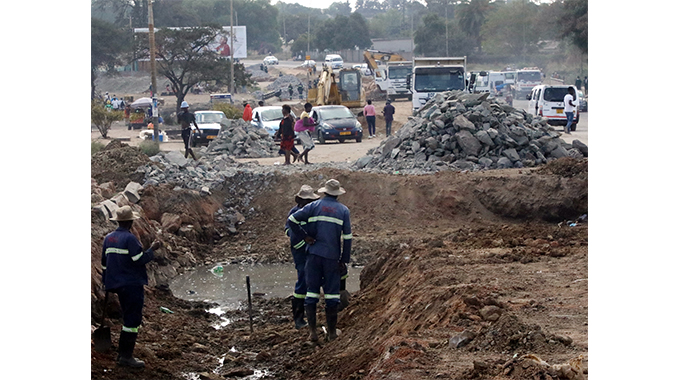
“It is, therefore, important that efficient permanent sub-soil drainage is provided to prevent the level of the water table rising to formation level and to drain water which may have penetrated through the edge or cracks and joints in the road pavement into the road structure. The road design standards requires that the sub-soil drainage systems should be provided to prevent the water table from rising to within 600 mm of the formation level,” she said.
Mrs Mpofu said the rehabilitation of Luveve Road and Leeds Street located in Belmont industrial area are the major roads to be rehabilitated this year.
“The city’s focus on road rehabilitation works is currently on Luveve Road. The other major road rehabilitation works were expected to commence on Leeds Street on the 2nd of May 2023 but the contractor who is currently working on Bakers’ Inn Improvements works is partially occupying the carriageway making it impossible for the council’s construction team to start works. Council team will move in once the contractor clears the site in the coming week or weeks,” said Mrs Mpofu.
She said council is inadequately resourced to undertake road maintenance across the city and the situation is worsened by the volatile economic environment.-@nqotshili


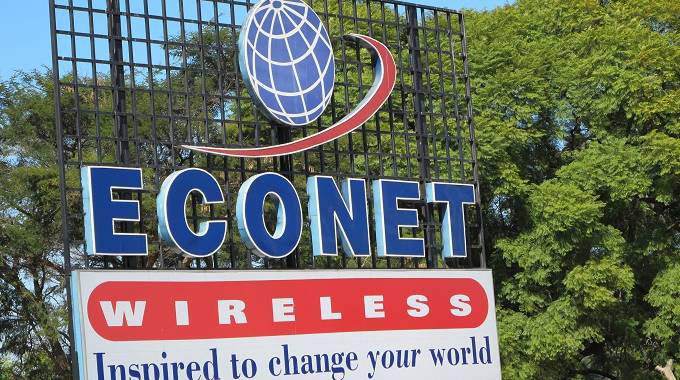


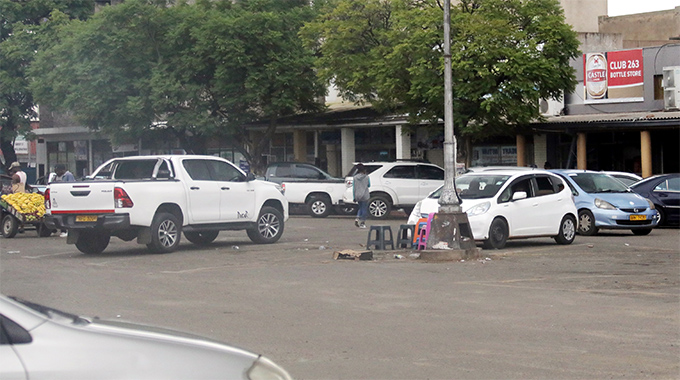






Comments